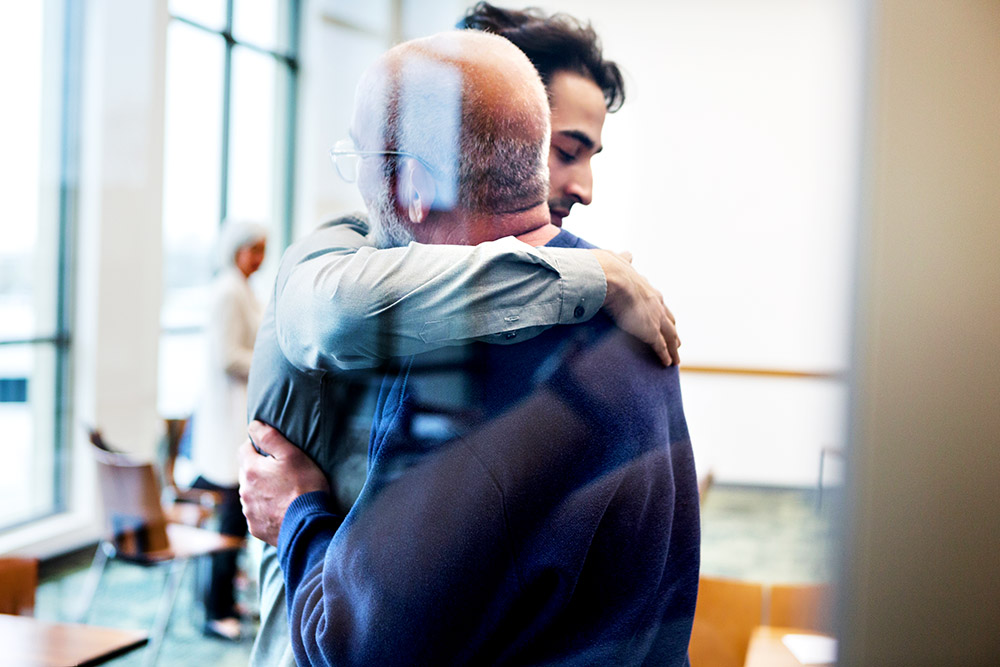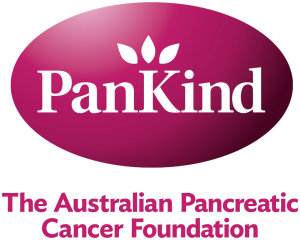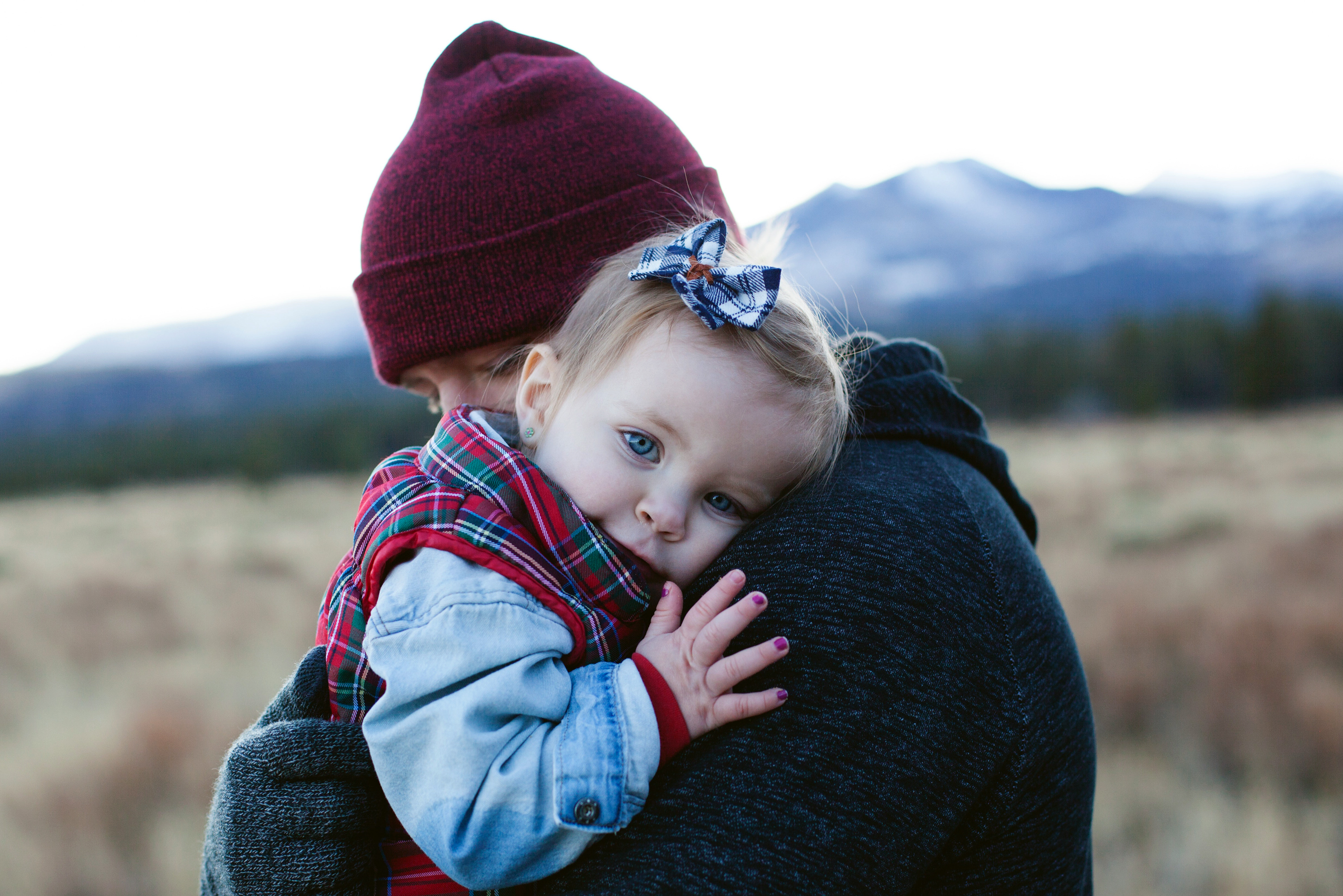For Caregivers

A carer is anyone, whether family or friend, who is helping to look after someone with cancer. Although caring for someone with pancreatic cancer is often rewarding, it can also be tiring and stressful, especially when it is someone you care about a lot.
As a carer you are likely to go through many emotions, which are similar to the emotions the person you are caring for may often feel, such as fear, anxiety, guilt, anger, frustration and shock.
It is tempting to ignore your own emotions and needs when you are caring for someone with cancer. However, it is important you care for yourself during this time. You will be able to care for the person much better if you are rested and cared for as well.
‘There is such a range of ways people cope caring for someone in this situation. The carer and patient are more aligned than people realise. If the carer doesn’t do the best job, then the patient doesn’t get the best result. And the first time around with my first wife, I didn’t care for myself – I was much younger and had two young daughters. But with my second wife I was more selfish, and I focused on Frances and was not a support person for other family members, which worked better for me.’ ~ Milton (carer)
*This video was made possible by support from the James N. Kirby Foundation.
Newly Diagnosed?
If your friend or loved one has recently been diagnosed with pancreatic cancer you may want to check out our Newly Diagnosed Kit. You may also want to download or order our comprehensive Living with Pancreatic Cancer booklet for people affected by pancreatic cancer.
For additional information and support contact PanKind’s Support Navigator on (02) 7207 6970 or email support@pankind.org.au.
‘Being a carer for someone you love provides an environment where you are forced to examine your beliefs, emotions, and what underpins your relationship. I was lucky to have had 25 years with a person who was loyal, caring, loving, and who demonstrated courage, strength, and beauty in the most trying of circumstances.’ ~ Milton (carer)
Looking after Yourself
There are a range of other pancreatic cancer support services that can help take some of the pressure off carers, for example, meals on wheels and district and palliative care home nursing services. Cancer support groups may also help and are usually open to carers as well as patients with cancer. Further information about these services is provided below.
PRoCESS Trial
If you’re the main support person for someone recently diagnosed with pancreatic cancer, you may be interested in participating in the PRoCESS Trial - a free support service trial. The Pancreatic cancer Relatives Counselling and Education Support Service or PRoCESS trial aims to explore whether talking to a trained nurse-counsellor via video or phone is helpful. Visit the PRoCESS Trial page for more information.
Things that may help
- Make time for yourself to get out of the house and share your feelings with someone you trust.
- Be active each day if possible, even if only for a short walk outside.
- Eat a healthy, well-balanced diet and drink plenty of water.
- Rest when you can.
- Accept help from others where possible, and don’t feel guilty if you can’t do everything. Listen, but don’t feel you always have to fix things.
- See your GP if you are feeling anxious, sad or low in mood all the time or have any other health concerns. Don’t put off seeing a doctor if you have symptoms that won’t go away.
- Accept your role as carer is difficult at times and there will be days you won’t feel as positive or able to support the person you are caring for as well as usual. You may even feel resentful at times. It is very normal to have these feelings and doesn’t mean you don’t love or want to care for the person.
- Nominate a close friend or family member to be the person who communicates to others about the person with cancer. Using group emails, texts or a daily blog can be useful tools to update everyone on the person’s health, treatment and support needs.
‘As a carer you run the risk of crowding or over protecting your loved one but finding a balance where they are cared for adequately, but you can’t take over someone’s life just because they are sick. ‘ ~ Milton (carer)
Financial Support
You may be eligible for a Carer Payment or Carer Allowance, which are funded through the government. Both these payments can provide carers with income support if you are not able to work or you are working but still caring for someone.
Visit this link from Carers Australia to learn more about the different types of Centrelink Payments available to carers.
You may also want to contact Centrelink on 13 2717 to find out more about the Carer Payment and Carer Allowance or visit their website.
Services that may help
- Carer Gateway is an Australian Government initiative which has been established to help carers (all diseases). If you care for a family member or friend, then Carer Gateway could help you. Carer Gateway:
- provides practical information and advice
- helps you to get the services and support you need
- provides free counselling services over the phone
- provides free coaching to help you in your role
- let’s you connect with other carers through a community forum
- Carers Australia works with carers’ associations throughout Australia to help improve the lives of carers.
- The Cancer Council has a useful booklet ‘Caring for someone with cancer’ (a hard copy booklet can be requested from Cancer Council).
- Young Carers Network is a place for young carers to learn about support services, access resources and share their stories and opinions. It is a Carers Australia initiative.
- Occupational Therapy Australia has a booklet with some great ideas and detail information about how you can look after yourself while you’re caring for a loved one.
Home Care Support
Commonwealth Home Support Programme – provides a little support for everyday tasks to help your health and wellbeing. It provides support for people over 65 years or older, or 50 years or older for Aboriginal or Torres Straight Islander people. Or for people over 50 years, or 45 for Aboriginal and Torres Straight Islander people and on a low income, homeless or at risk of being homeless. A home support assessment will help you find out what services are available to you.
Home Care Packages – provide more comprehensive services to older Australians than the Commonwealth Home Support Programme. Services include help with nursing care, meals and food preparation, physiotherapy and other therapies, cleaning, laundry and other chores, home and garden maintenance, bathing, hygiene and grooming, changes to home, and transport. Apply for an eligibility assessment here.
National Disability Insurance Scheme (NDIS) – can fund everyday help for people with disability, including planning and cooking meals or getting meals delivered. Find out if you are eligible here.
State and territory Community and Home Care Programs:
- Queensland – Community and home care services
- South Australia – Home and community care services for older people or Aboriginal Home Care
- Tasmania – Home and Community Care
- Victoria – Home and Community Care Program
- Western Australia – Home and Community Care
- (note: the Australian Capital Territory, New South Wales and Northern Territory do not have separate program)
Support Groups and Counselling Services
A support group often provides a place to feel safe to talk about your feelings with others going through similar experiences. Some carers find joining a support group comforting and a great source of information. Support groups may be available in person, over the phone, or online. Visit our Support Groups page for further information.
Carer Gateway also provide a Carer Advisory and Counselling Service (1800 422 737) as well as referral services and practical written information.
Family and Friends
As a carer you can often find that you are the main point of contact for family and friends. Providing constant updates and coping with family and friend’s reactions can become challenging and draining when you are caring for a loved one with cancer. Remember it is up to you and the person you are caring for to decide how much detail to share with others.
You may want to update those closest to you through a group chat, social media, or blog. It may also be helpful to ask a close friend or relative to be in charge of updating the larger family or group of friends so you can focus on looking after your loved one and your immediate family.
Cancer Council have some good tips on talking to your friends and family after a cancer diagnosis. They also have a booklet all about Talking to Kids About Cancer.
Caring Bridge is one example of a free blogging platform. It provides a place for you to create a personal blog to share health updates, photos, and videos with the people you care about. You can customise setting to make your updates private or public. They state that your data is never sold and there is no outside advertising, however there is advertising for Caring Bridge. Please note we are in no way affiliated with Caring Bridge and this is not an Australian-based website so some features may not be relevant.
Offers of Support and Asking for Help
You may also find that those around you want to help but don’t know what to do or say. It may also be hard to know yourself what to ask for help with.
Gather my Crew is a free app which helps people offer and ask for help and provides help literacy resources. This app allows you to easily coordinate friends and family to help in the ways you need, turning offers of ‘let me know what I can do’ into action that makes a difference. The app is developed by clinicians who understand the power of getting the right help at the right time.
‘I was also the main communication point to all of mum’s family and friends – this was a difficult task, and certainly something that in hindsight it would be great to have a resource around how you can be that person, who relays the good and the bad, and then ultimately that mum passed away.’ ~ Kat (carer)

Always consult your doctor or health professional about any health-related matters. PanKind does not provide medical or personal advice and is intended for general informational purposes only. Read our full Terms of Use.
Thank you to the clinicians, researchers, patients, and carers who have helped us create and review our website information and support resources, we could not have done it without you.








